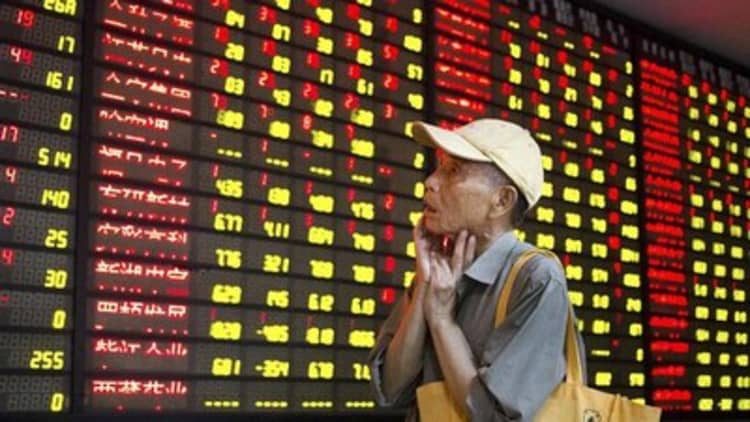
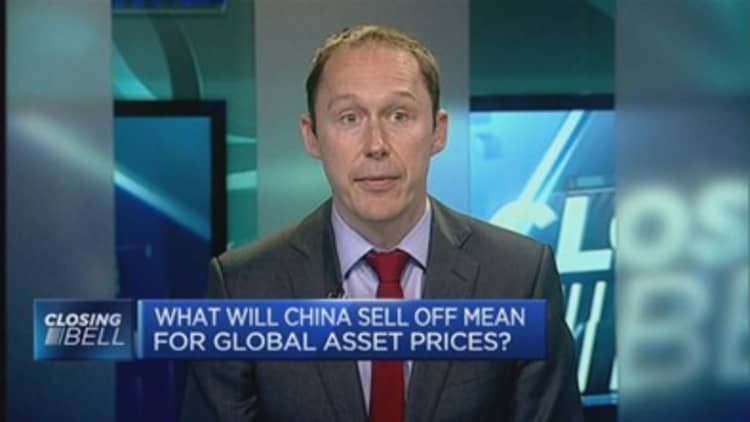
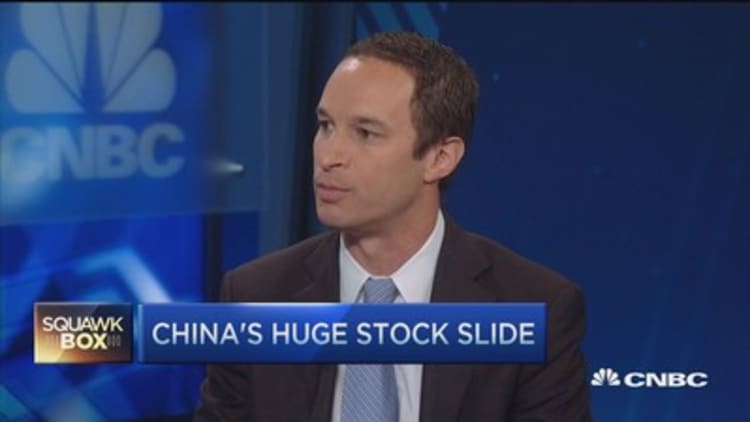
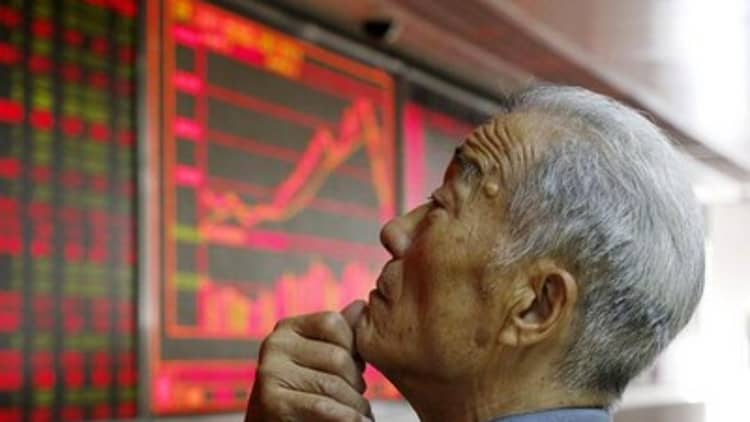

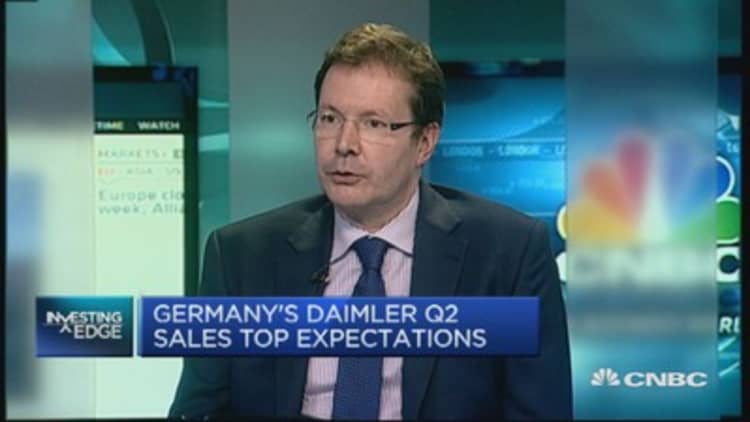
China's benchmark stock market slid 8.5 percent on Monday, suffering its biggest daily loss since 2007, indicating that there is seemingly no reprieve to the violent selling rocking the country's equities.
A sharp fall in commodity prices, weak Chinese economic data and concerns that Beijing may be reluctant to dole out further measures to support beaten-up shares all contributed to the sell-off, analysts said.
Data released earlier on Monday showed China's industrial profits declined 0.3 percent year-on-year in June, compared with a 0.6 percent rise in May.
Read MoreWatch out, volatility is set to spike: Trader
And the stock-market slide in China, the world's second biggest economy, had ripple effects across the globe. Major stock markets in Europe shed 2 percent and U.S. slid in early trade.
"What's going on in China is a bit self-feeding, commodity prices are falling which is negative for China as an exporter and that's impinging on other investors' views on fundamental demand as China is also a big importer so the market grinds lower," Matthew Beesley, head of global equities at Henderson Global Investors, told CNBC's Worldwide Exchange on Monday.
"We've seen frenzy on the way up and frenzy on the way down and external investors don't quite know how to position themselves and really what the government is going to do in terms of support," he added.
Chinese stock markets have had a wild ride this year– with the benchmark Shanghai Composite stock index rising a hefty 60 percent in the first half of the year only to slide 30 percent since a June peak above 5,000 points.
Beijing meanwhile has stepped in with a number of measures in recent weeks to arrest the slide and, up until Monday's tumble, those steps appeared to help put a floor under the selling. Earlier this month, for instance, the Chinese Securities Regulator banned shareholders from selling large stakes in listed firms.
Following Monday's rout, the regulator said the Chinese government would increase its stock purchases in a bid to prop up the market and that the possibility of "malicious" shorting of stocks was being investigated, according to Dow Jones.
"I think the most interesting thing about today is that there was talk about China pulling back from supporting stocks," Peter Boockvar, chief market analyst at the Lindsey Group, told CNBC's "Squawk Box."
"The stock market is its own animal, just like the rally didn't reflect anything nor does the decline," he added.
Other analysts said the bearish sentiment towards Chinese shares was likely to linger for now.
"We do think that in the short-term, sentiment is quite negative and there is concern about what policymakers intend to do next," Medha Samant, investment director, Asia Equities at Fidelity Investments told CNBC earlier on Monday.
Talking about the longer-term outlook, Samant added: "When we look at Chinese equities today and we look at the selloff we've seen, from a bottom up perspective we do see value in some of the large cap names based on the consumption theme."


